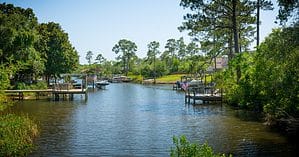Hawaii is a lush haven filled with ocean cliffs, misty plateaus, rainforests, white sand beaches, and lava deserts. It is a paradise for relaxation and well-being, but it is also a dream for recreationists. People from all over the world visit Hawaii for surfing, snorkeling, ziplining, fishing, parasailing, and swimming. And, of course, hiking is a favorite pastime for visitors. If you visit any of the parks on the islands, chances are you will be hiking through rainforests at some point. And with all of its dense vegetation, there must be some scary creatures lurking nearby, right? There are a few animals to keep a lookout for, but the answers may surprise you. Beware of these three dangerous animals found in Hawaii’s rainforests and find out how deadly they can be.
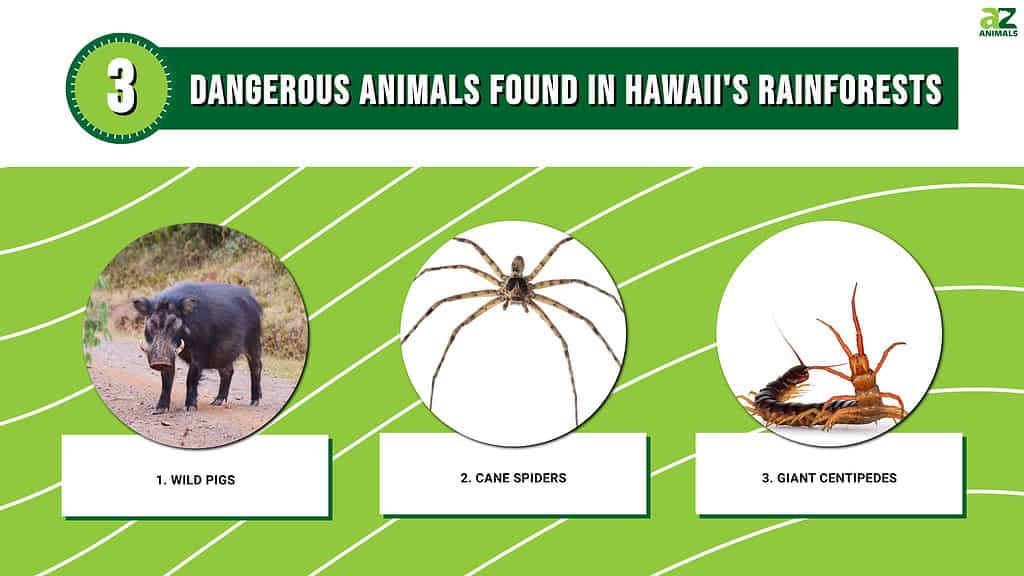
Are There Any Dangerous Wild Animals in Hawaii?
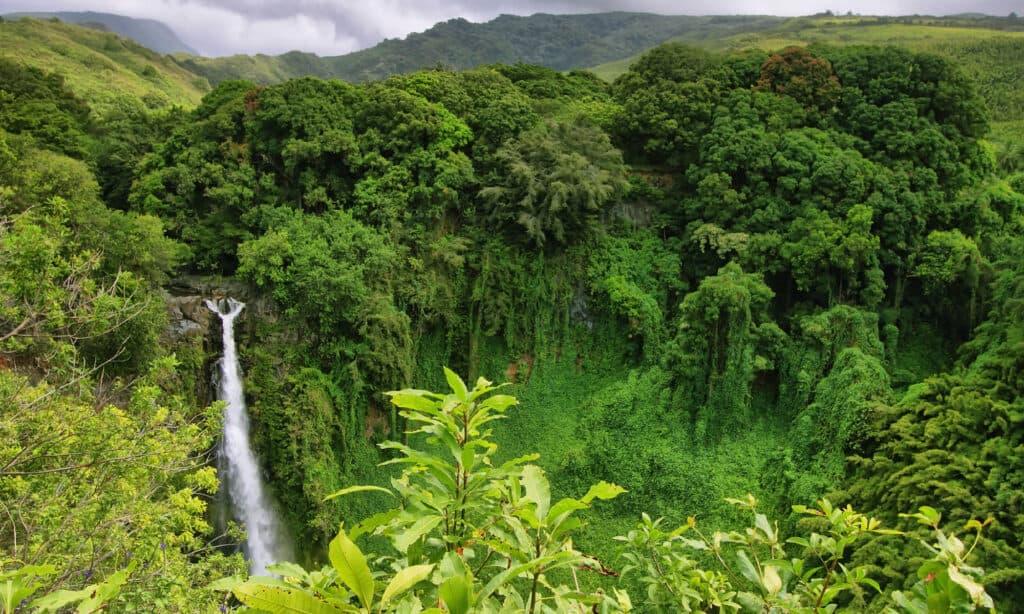
Despite its lush, dense rainforests, Hawaii doesn’t have many predators or dangerous animals.
©iStock.com/estivillml
Despite its tropical climate and lush forests, Hawaii has very few animals that cause harm to people. There are no big land predators in Hawaii like there are in the continental United States. You won’t find bears, mountain lions, or alligators anywhere. There are also very few plants that can cause any damage, such as poison oak. However, the Pacific Ocean that surrounds the islands is a different story. Hawaii’s oceans contain sharks, box jellyfish, moray eels, sea snakes, and cone snails.
What is the Largest Predator in Hawaii?
The biggest predators you have to worry about in Hawaii are sharks. Tiger sharks, specifically, are the most common predators you might come across in the Hawaiian Archipelago. Some other common sharks near the shore include whitetips, blacktips, sandbar sharks, and scalloped hammerheads.
There are no large land predators in Hawaii. The most common mammals on the islands are monk seals, boars, deer, mongoose, rats, wallabies, and feral cats. There are also no dangerous land snakes. However, there are a couple of medically significant sea snakes, such as the yellow-bellied sea snake found in tropical water.
What Are the Most Dangerous Animals Found in Hawaii’s Rainforests?
Truth be told, most of the dangerous animals in Hawaii come from the ocean, not the land. Even in the lush rainforests, where you would expect to find giant snakes and big cats, there are no significant threats to humans. But here are a few creatures you may want to keep an eye out for:
1. Wild Pigs
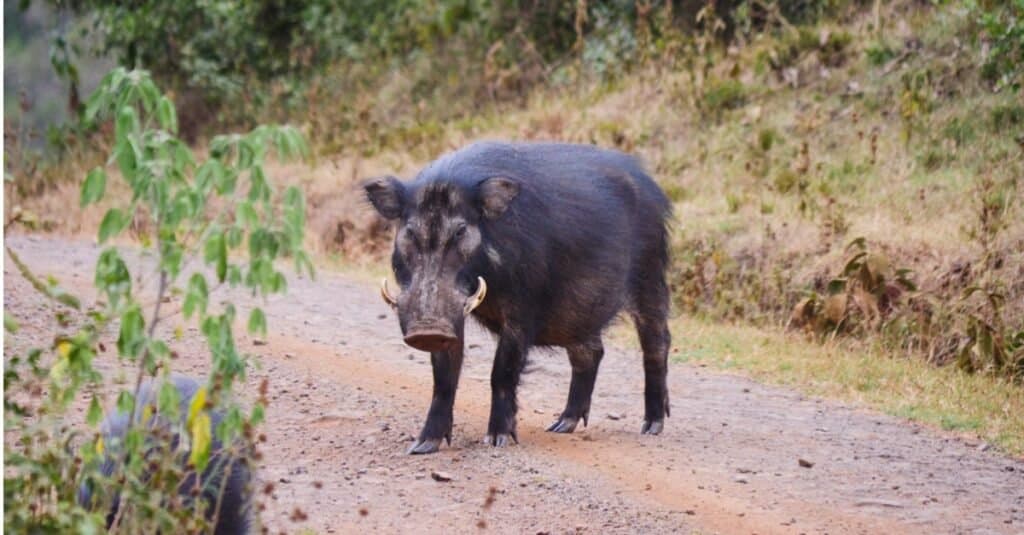
Wild boars rarely attack humans, but they can transmit diseases.
©iStock.com/chingkai huang
Like the continental United States, Hawaii has a feral pig problem. These wild pigs are not native and were introduced as early as the fourth century AD. They eat massive amounts of native vegetation, erode soil, and spread diseases. And many attempts at controlling their population have failed. They live on almost all of the main islands and thrive in forested areas, especially the rainforests of the Hawaii Volcanoes National Park. While attacks from wild pigs are rare, they have happened. These animals have sharp tusks and a strong bite force. But they can also transmit bacterial, fungal, and viral diseases to humans. If you see one while hiking through the Hawaiian rainforests, back away and defend yourself if necessary.
2. Cane Spiders
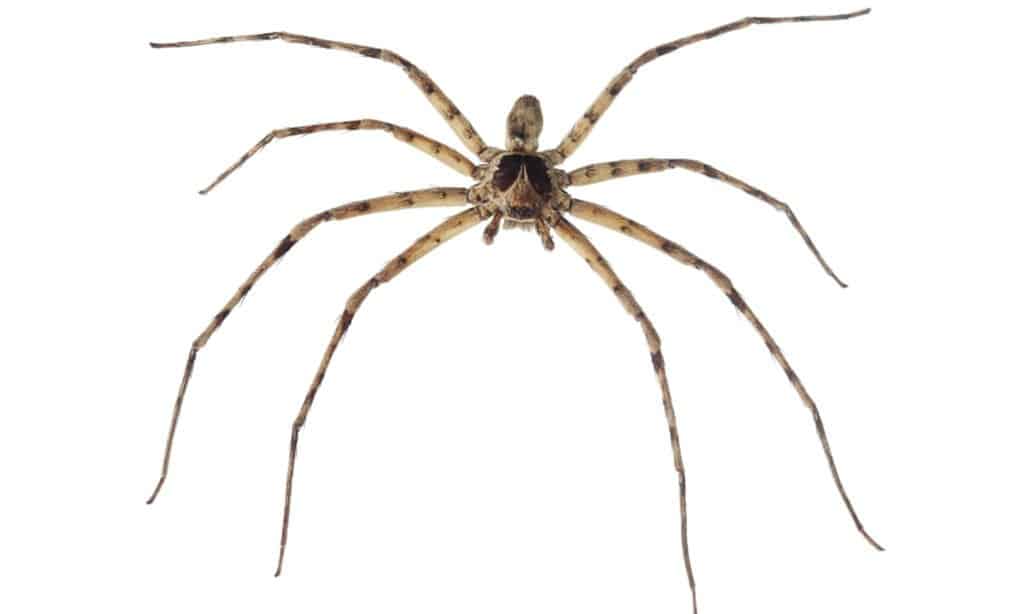
Cane spiders hide under bark and inside tree holes.
©foto76/Shutterstock.com
The cane spider is native to Hawaii and can be found on all of the islands. They are the largest spiders in the state and are very prevalent. These spiders have large bodies and long, thick legs, measuring 4 to 6 inches in total. If you’re not a fan of spiders, these may cause quite a shock. They get their name due to their prevalence in sugar cane fields, but they also frequent forests, where they hide under bark and inside tree holes. The cane spider is not an aggressive species, but it will bite if provoked. They are venomous, and their bites can be painful. Thankfully, their venom is mild to humans and only causes headaches and swelling for a few hours.
3. Giant Centipedes
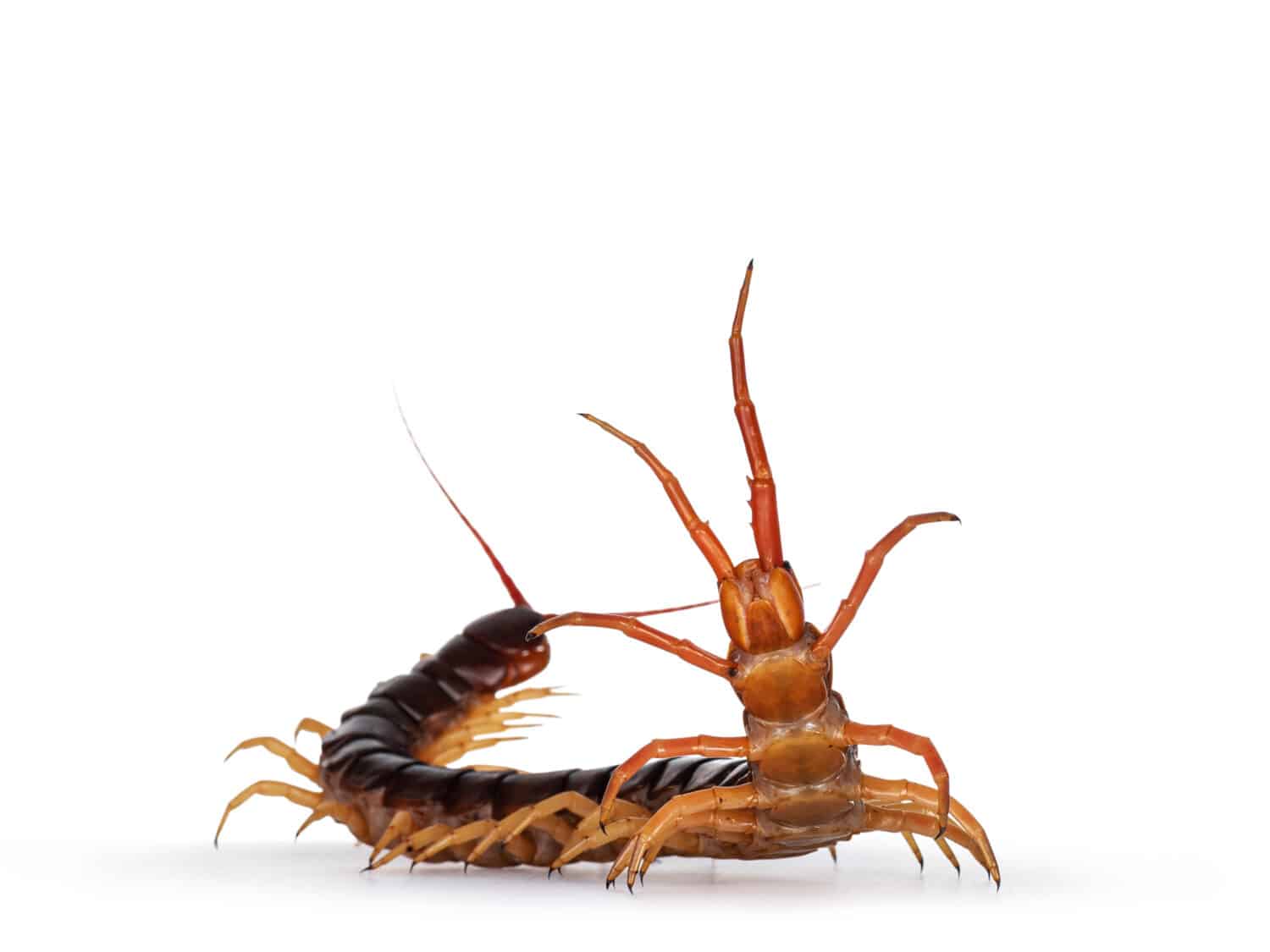
The giant
centipede
delivers a painful pinch and mild venom to humans.
©Nynke van Holten/Shutterstock.com
While there are several centipede species in Hawaii, the giant centipede is one of the largest, most prevalent, and most significant to humans. They have reddish-brown bodies and bright red legs. And they measure 6 to 9 inches long, making them hard to miss. These creepy crawlies also live in many different habitats, from dry to wet. They are common in rainforests, where they like to hide under logs, rocks, soil, and leaf litter. If disturbed or threatened, giant centipedes can pinch and deliver venom. The pinch can be painful and the reaction to the venom can cause mild reactions, such as swelling around the bite or even swelling of an entire limb.
Summary of 3 Dangerous Animals Found in Hawaii’s Rainforests
| Rank | Dangerous Animal | Danger |
|---|---|---|
| 1 | Wild Pigs | Can transmit bacterial, fungal, and viral diseases |
| 2 | Cane Spiders | Painful bites with venom that causes headaches and swelling for a few hours. |
| 3 | Giant Centipede | Painful pinch that delivers venom |
The photo featured at the top of this post is © iStock.com/estivillml
Thank you for reading! Have some feedback for us? Contact the AZ Animals editorial team.






